You know that feeling after waking up from a strange dream...those few seconds of disoriented, uneasy confusion? Having to parse reality from your mind's own creations? Welp, the finale of Twin Peaks: The Return has managed to pinpoint that feeling and make it last indefinitely.
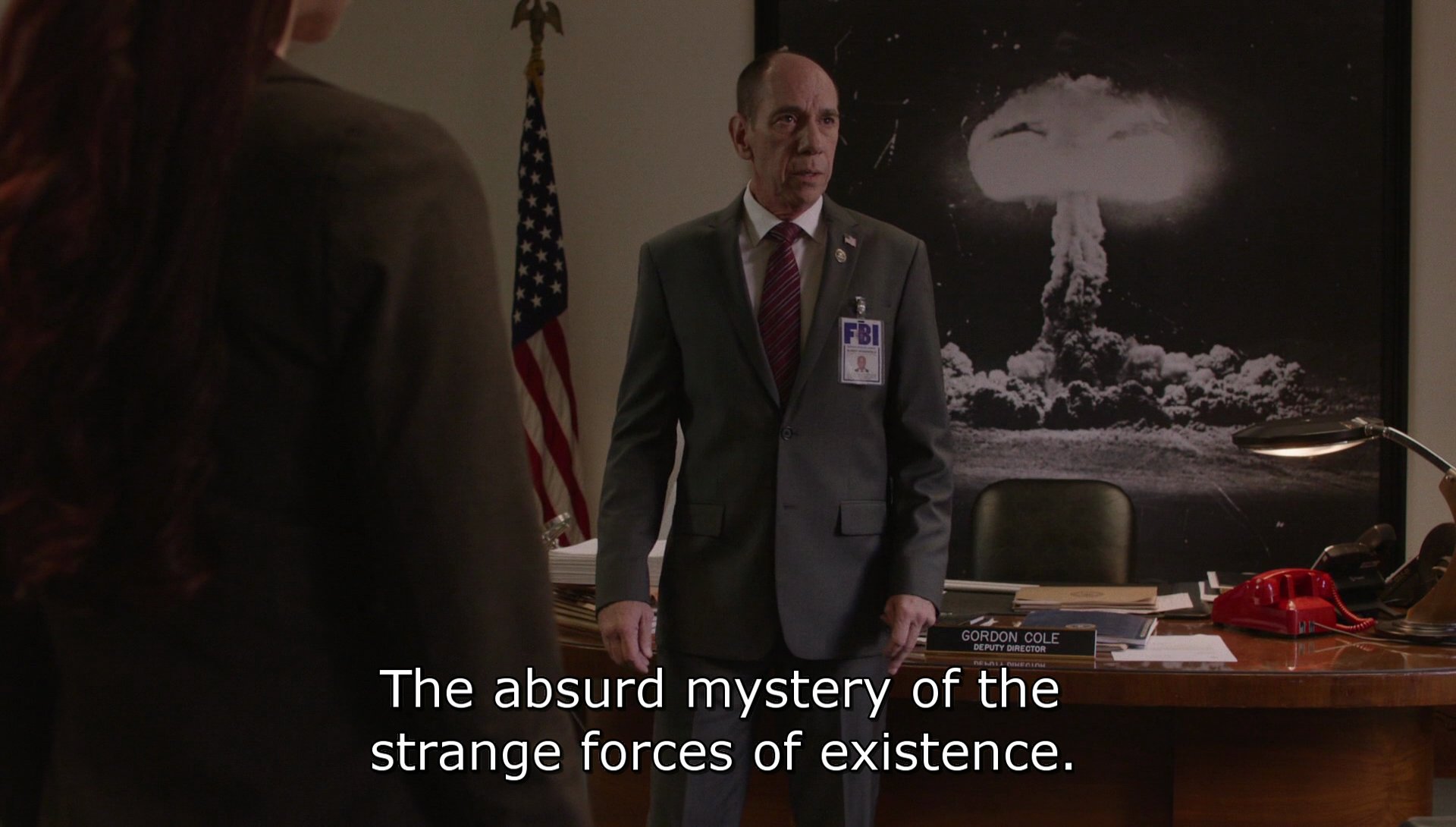
Man...David Lynch and Mark Frost really made me think we were getting a neatly packaged resolution with Parts 16 and 17, then just shattered everything to pieces with Part 18. I still have no idea what to think, and my new favorite pastime is reading all the speculation in the Twin Peaks subreddit. (I think it's safe to say that there's enough material to fuel discussions for at least the next 25 years.)
Since I don't ever post on Reddit except when one of my favorite people is doing an AMA, I'm going to dump all my thoughts/half-baked theories here instead (it's about time I got use out of this blog).
BEWARE! Lots of spoilers and rambling ahead.
Now, we're not gonna talk about Judy (yet), but we are gonna talk about:
Audrey, Charlie, and the girl who lived down the lane. WHAT'S GOING ON WITH AUDREY? Leading into the finale, I was ready to accept that certain parts of what we'd been seeing in The Return (especially in the Roadhouse) were all part of Audrey's dreams, or other people's dreams. I still kind of believe that, but it's likely we'll never really know, because no mention of Audrey is made again. One thing that I can't stop thinking about is the Audrey/Charlie dialogue from Part 13:
CHARLIE: Are you gonna stop playing games, or do I have to end your story too? AUDREY: What story is that, Charlie? Is that the story of the little girl who lived down the lane? Is it?
(At the end of Part 16, Audrey seemingly "wakes up" with no idea where she is.) The same question shows up again in Part 18, except this time it's The Arm asking Cooper: "Is it the story of the little girl who lived down the lane?" We don't know who the girl is (maybe the one from 1956?) but the line implies that there are several parallel or alternate universes in play...either that or the stuff we've been seeing in The Return is being played out in someone's dreams. Regardless, the Black and White Lodges and their spirits appear to exist in all of these stories.
If the little girl is in fact the one from 1956, maybe that is a different universe/dream from the one with the Laura Palmer murder mystery, and Lynch/Frost have been showing us a bunch of snippets from both, which we've mistakenly thought were all part of the same story. WHO KNOWS.
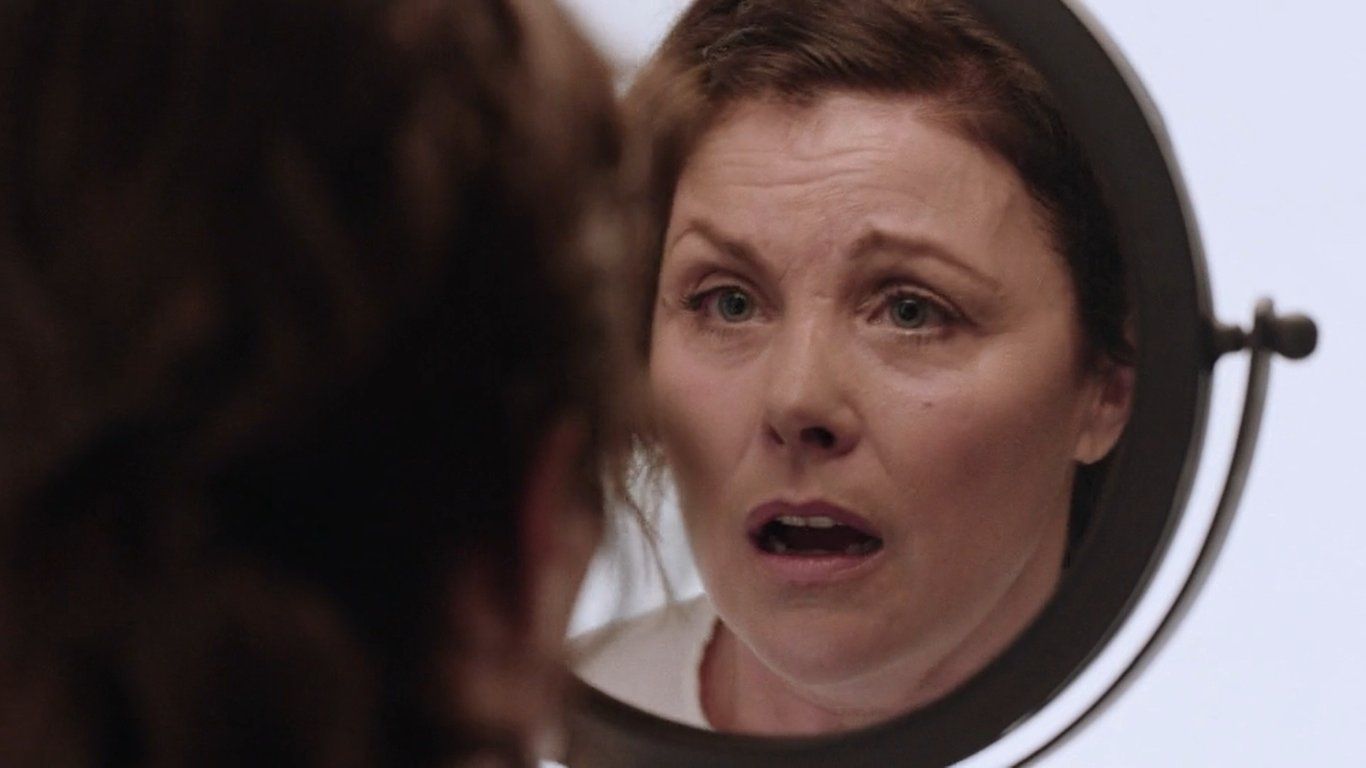
Diane and the most terrifying sex scene ever. I must confess, after it became apparent that the "Diane" we'd become acquainted with in The Return was actually not Diane at all, I was kind of hoping we'd never actually meet the real Diane. I loved that we never saw her in the original series, that it was possible she was just a figment of Coop's imagination. But nope! We saw at least two more Dianes before the end of the show, and by the time we got to the motel in Part 18, I just had no idea who she was anymore.
In Seasons 1 and 2, the idea of Diane was like a fun mystery: Who is she? How does she have the patience to listen to all of Coop's ramblings? Season 3 turned that idea upside down, to the point that just thinking about Diane makes me extremely uncomfortable. Even the scenes that were supposedly "real Coop and Diane" were not rewarding at all...to me, at least. The last we see of her is that horrifying sex scene that ends with Diane smooshing Cooper's face (no, not in a violent way, just exactly how it sounds). Did Cooper and Diane ever have real affection for each other or was this some twisted Coop fantasy? Was it yet another dream (the lyrics to "My Prayer" seem to support that)? WHO ARE RICHARD AND LINDA?! There are so many WTF-worthy plotlines in the return, but the continued WTF-ness of Diane has had the biggest emotional effect on me.
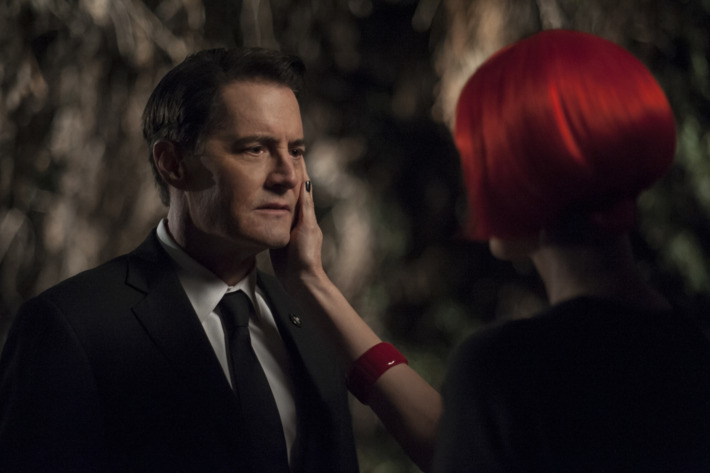
Dale Cooper and the effects of space-time travel. AGH. The real Cooper returned to Twin Peaks for like, one glorious second, before embarking on some sort of extended space/time travel that seems like it may have erased Laura's existence entirely?! Throughout Part 18, when we see Cooper taking Laura/Carrie from Odessa to Twin Peaks, I kept changing my mind about whether the person we were seeing was good or bad, maybe some sort of alternate universe Coop with different experiences (or, actually, an entirely different person named Richard??). Or was it really the same Special Agent Dale Cooper, now on a dire mission to save Laura a.k.a. the spirit from the White Lodge?
Watching him shoot a guy in the foot and demand an address from the waitress at Judy's diner, I had to remind myself that the Cooper of Twin Peaks wasn't always coffee-and-pie either; sometimes he told women to shut up before punching them in the stomach (side note: the wallpaper in that room looks eerily familiar to the one in Laura's dream/the room at the top of the stairs). Honestly, I'm still having a hard time deciphering his intentions in Part 18. Did he really want to save Laura so badly that he put his and Diane's entire existence at risk? Or did someone tell him to do it? Is Cooper as much of a pawn in the game as Laura and Leland and the rest of them? As some people have pointed out, the agents in the Blue Rose case seem to be doomed to getting lost in time, so maybe it's just his fate.
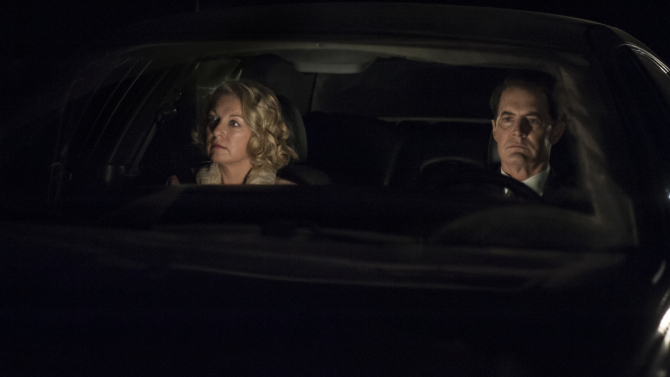
Ok, and now a quick seg into what I feel is the underlying message/question/theme of the entire series...
Bob, Judy, and the manifestation of pure evil. There's something morbidly amusing about associating normal human names with the embodiment of absolute evil, but it also makes sense (I can't really fathom evil on Earth existing without humans). Bob is a more modern evil, seemingly born out of humankind's experimentation with war and weapons of mass destruction (see Part 8), while Judy is the mother of Bob, an "ancient evil." We saw the destruction of Bob (in which Freddie punched him into the ground with his gardening glove - was it really that easy?), but it seems like Judy is much more indestructible. Throughout the series, Bob inhabits various hosts when they're most vulnerable, feeding off their pain and suffering. It's less clear how Judy plays into the story, although it seems like she inhabited Sarah Palmer's body at some point (probably after the whole Laura-Leland thing) and seems to have messed with Cooper's attempts to save Laura from death.
There are infinite unanswered questions about all this, but I think Lynch is trying to tell us that evil is never inherent in a person. Everyone is born a blank slate, but depending on environment and circumstances and other factors, it can become easy to let evil in. Even Laura, seemingly the embodiment of good, let herself get corrupted. The White and Black Lodges are your basic good vs. evil forces, and in the end, neither won, but I think both of them have a sort of eternal existence.
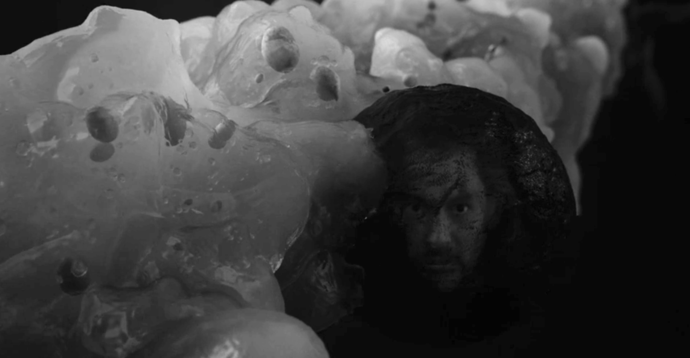
I have so much else to say about The Return, like how I wish we could've seen more of Albert and Constance, how much I love the Mitchum Brothers, and how Ben Horne has turned into one of the most likable people in Twin Peaks. And how the death of the Log Lady made me cry. But I guess I'll leave that for another time.
This show is an absurd, terrifying, joyous work of art, and I will miss watching a new piece of it every Sunday.
Supplementary video that provided some LOLs: Twin Peaks without context